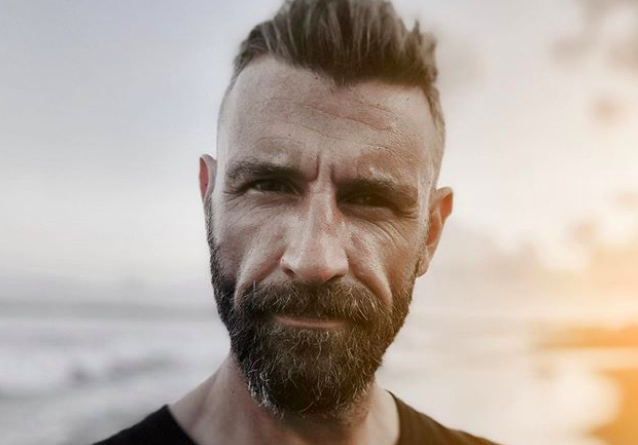*Warning! Adult language.
~
As society’s general mental health continues to dwindle, more people are apparently affected by manipulation, gaslighting, and covert passive-aggressive narcissistic behaviour.
Scorned, traumatised, and exhausted from their experiences, a vast sway of people share stories of falling foul to these negative personality types and traits.
Perhaps surprisingly, Google keyword research shows that 2019 saw a whopping 3,500 percent increase in searches for “How to torture a narcissist.” This might well indicate that the tides are turning, or more depressingly, that taking revenge has become a priority over accepting co-responsibility or a position of compassion.
Since we are most definitely in the midst of a global rise in consciousness, this makes partial sense. No longer content with continuing to enjoy the human condition of suffering, we grow weary with our unhealthy penchant for playing the role of victim. But revenge is just another form of drama.
Whilst the majority of discussions on the topic of narcissism derive from victims or rescuers, I’m interested in shining a light on the perspective of the persecutor — the baddies — who, for the absence of doubt, come from all genders. I’m keen to ask the question: can a narcissist change?
Why am I writing about this? Well, the simple and sorry fact is that I used to be one.
Narcissistic Personality Disorder
Somewhere on my former list of mental health issues was Narcissistic Personality Disorder (NPD). Actually, given the nature of NPD and its constant need for attention, it’s safe to assume that it was at the top of that list.
You may well be thinking, a narcissist would never admit (or does not know) that they are a narcissist — yet I’m freely admitting that I was one. Ergo, yes friends, a narcissist can change. Though it requires a real desire from the persecutor’s perspective, and a fuck-ton of hard work and patience.
Ugly, spotted leopard
My narcissism was one of the ugliest things I had to come to terms with, in my self-imposed program of awareness development. Funnily enough, it’s not a nice thing to be a narcissist. My narcissism was mainly (but not exclusively) directed toward the women in my life. It included unhealthy persuasion, lying, self-aggrandising, and psychologically manipulating them into questioning their own sanity (gaslighting).
Whilst never physically violent to a partner, one of my key traits was to surgically invalidate the feelings of my victims. As a professional communicator, and as (at that time) a Myers Briggs ENTP-A / ENTP-T “Debater” personality type, I was naturally predisposed to being able to exhaust my victims with the power of words and debate.
Timing was everything. I have a fierce memory for conversational detail, and this, added to an ingrained ability to raise my voice to shift linguistics up a gear or use the theatre of violence toward inanimate objects, all made me an effective and terrifying creature to deal with. Add the nine pints of lager, three gin and tonics, a dash of cocaine, and three or four fingers of scotch that my high-functioning addiction would bring to the table, and, well, I think you know how that might turn out.
I would also cheat. I cheated on the majority of my partners, and on both of my ex-wives. I even lied so well that I convinced myself that these things never happened. If and when one of them cheated on me, I would subject them to a one-sided witch trial, before burning them at the stake. Scorched earth for them, without so much as a thought for my own indiscretions.
I take no pleasure in making these admissions. I write all of this openly for a greater cause and have already personally apologised to the majority of those who would listen.
Doing the work
The thing that many neglect to consider is that narcissism and gaslighting are symptoms of mental illness. Following years of therapy, self-reflection, and healing, this inner work clearly helped me to define the root of my behaviour. I discovered that my narcissism derived from a need to feel validated, wanted, and “loved.” However, as an extraordinary self-sabotager and lacking the emotional skills, my broken mind rendered me incapable of reaching out to anyone to ask for care (help).
My mental illness also perversely replaced sex with intimacy. So whilst my inner child actually just wanted a cuddle, Martin v1.0 was preprogrammed to live and act in a constant state of fight-or-flight. He would never ask for help, as he had absolutely no faith that it would appear. Furthermore, I trusted no one, and subconsciously prepared to be let down by anyone and everyone at any moment.
“To be so broken, to have fallen so deeply, that the only thing you can do is rise into a new you…” ~ Yung Pueblo
In the absence of care or intimacy at times when I needed it, I would seek it in the arms of other women. Ironically, and more often than not, these were the most meaningless of encounters. Yet even in these situations, I would become highly manipulative — this time to the women with whom I was cheating.
If I knew I’d overstepped the mark and an apology was needed to redress the balance to get me “back in the good books,” sure, I could do that. But my apologies were also carefully loaded with excuses for my behaviour. Strategically peppered with reasons why my victim really ought to consider how she had brought it all on herself in the first place. Sound familiar? What a guy…
To the roots
Of course, I didn’t have an addiction problem because I was a narcissist; I had narcissist and addiction problem, because I was a broken human. Unsurprisingly, this stemmed from my childhood.
Right the way back in the 1970s, I grew up surrounded by the trauma created by an alcoholic parent, who — literally possessed by the demon of drink — would babble and witter to themselves. This made for an energetically unhealthy home.
There was a great deal of dishonesty in the household and we constantly witnessed verbal and physical acts of violence. I would observe the adults in my family (my “role models”) raising their voices and using vitriolic and unspeakably hurtful language. They threw constant conversational hand grenades at one another.
My little brother and I were in the centre of this, with the most simple of questions constantly on our lips: “What’s wrong with mummy?” This was my childhood. That poor kid never had a chance.
Whilst this kind of upbringing is, of course, heinous child abuse—I am not alone. The whole planet is so sadly full of people with similar and far worse stories than mine. It truly breaks my heart that we are capable of inflicting such deep-rooted and catastrophic damage on one another. The ripple effect of such abuse literally knows no end. Persecutors create victims, who then, unwittingly become persecutors by way of their own bitterness, thus inflicting yet more pain and suffering on others.
And so it goes on.
Lucky man
Despite my CV, I was one of the lucky ones. I got so low, I had few options left to me, and thankfully, I chose to reinvent and rise. Naturally, the complexities of my narcissistic behaviour ran deep, and thus you should only view this story as an outline introduction, shared as a means to frankly and candidly propose that a narcissist can change.
Of course, none of what I’ve written here makes it any easier for the victims of narcissism and gaslighting, but it does shine a light on the root cause whilst demonstrating that forgiveness, hard work, and patience, can practically heal these highly toxic mental health issues.
The work has to be done by the persecutor though—inner acceptance, forgiveness, and inner work are literally the only way. Therefore, a conclusion could be made that, until this work is done thoroughly and with conviction, narcissists and gaslighters simply have no business being in a loving relationship. After all, how can one possibly expect to be in a loving relationship with others when one does not (healthily) love oneself?
A huge part of my healing and rebirth (use the word “growth” if it makes you feel more comfortable) was the process of freely admitting fault, fully accepting responsibility for my actions, and to ask for forgiveness — first from myself — and then from those affected by my actions (being considerate to whether that contact might in fact do more harm than good). It was only at this point that I could begin to accept and exercise my behavioural change, and begin the long road toward actively rebuilding love and trust.
“Your healing lifts up the ocean of existence. When you heal, we all heal.” ~ Yung Pueblo
The harmful aspects of my illness are behind me. Still, I can never forget that narcissism is inherently programmed into my hardware. And so, regardless of its current redundancy, for me, the key is to remain mindful and always in the present; to constantly observe my thought patterns, and thus better control and alter my behaviour.
Avoiding drama triangles
Obviously I can’t fall on my sword for 100 percent of my failed relationships. I was also a victim of a handful of narcissists, of gaslighting, lying, cheating, and of verbal and physical abuse at the hands of my partners. Though I now see I was attracting that which I saw in myself.
With self-esteem as low as a Canadian thermometer in February, I subconsciously invited this drama into my life; and as a drama addict, I regularly switched between the roles of victim, persecutor, and rescuer. Toxicity bred yet more toxicity as I ping-ponged around drama triangles like a gloriously fucked-up pinball.
We’ve become a society that relies too heavily on the illusion of individuality and less on unity. As humans, it is in our nature to enjoy suffering, whilst finding it difficult to forgive. Complaining, blaming, and sidestepping responsibility comes all too easy to many. Playing the victim is comparatively easier than observing and learning from the lessons carried by these challenging life events.
In fact, we are co-responsible for a great deal of what happens to us — especially if we choose to repeat the same cycles without learning. There was a finite moment for me, whereby I stopped asking, “Why is this happening to me?” and instead asked, “What is this teaching me?” This reframing played a huge part in my ability to freely accept responsibility and co-responsibility for events in my life.
More importantly, it became an important utility in changing me.
Consider the aforementioned ripple effect and the concept of unity. Hurting you is hurting me; healing you is, therefore, healing me. And so the real head-fuck is: healing me, is in actual fact, healing you.
We just need to do the work. Without it, there will be no change.
~









Read 12 comments and reply